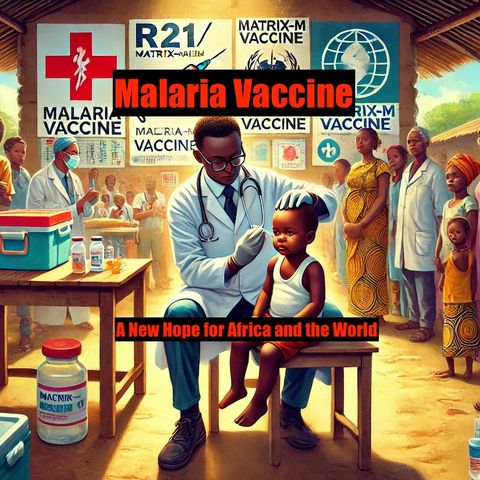Conquering Malaria: PECAN Emphasizes Crucial Role of Enhanced Mosquito Control Strategies

Sign up for free
Listen to this episode and many more. Enjoy the best podcasts on Spreaker!
Download and listen anywhere
Download your favorite episodes and enjoy them, wherever you are! Sign up or log in now to access offline listening.
Conquering Malaria: PECAN Emphasizes Crucial Role of Enhanced Mosquito Control Strategies
This is an automatically generated transcript. Please note that complete accuracy is not guaranteed.
Description
In a recent push toward conquering one of the most long-standing public health challenges in the world, the Progress and Enhancement for Community Advancement Network (PECAN) in Abuja has emphasized...
show moreMalaria, caused by Plasmodium parasites transmitted through the bites of infected female Anopheles mosquitoes, continues to be a significant health threat in many tropical and subtropical regions, including large parts of Africa. The World Health Organization reports that nearly half of the world’s population is at risk of the disease, with most cases and deaths occurring in sub-Saharan Africa.
Despite substantial progress over the past two decades, the emergence of resistance to antimalarial drugs and insecticides has hampered eradication efforts. In this context, the role of vaccines becomes increasingly vital. The first malaria vaccine, RTS,S, also known as Mosquirix, has shown moderate success, providing a crucial tool in the fight against malaria. Developed by GlaxoSmithKline, the vaccine operates by targeting the Plasmodium falciparum, the most deadly malaria parasite globally and the most prevalent in Africa.
Mosquirix, though not the perfect solution, offers about 30-50% protection against severe malaria in children, who are particularly vulnerable to the disease. The vaccine is administered in four doses, which can logistically challenge in remote and impoverished areas. Nevertheless, pilot programs introduced in Ghana, Kenya, and Malawi have shown promising outcomes in reducing malaria.
However, experts, including those from PECAN, agree that the vaccine should complement other preventive measures. There is a unanimous consensus on the necessity for robust and innovative mosquito control activities, which are indispensable components of malaria eradication strategies. These include the use of mosquito nets treated with long-lasting insecticides, indoor residual spraying, and environmental management to control mosquito populations.
Furthermore, the development of new tools and methods to combat mosquito-borne diseases is also on the rise. Scientists are researching genetically modified mosquitoes that could potentially reduce or switch off the transmission of malaria. Similarly, new chemical compounds that are less susceptible to resistance are also being developed.
In conclusion, while the development and deployment of malaria vaccines are a significant breakthrough, PECAN’s call for a multifaceted approach underlines the necessity of continuous innovation in mosquito control techniques. The intertwined approach of vector control, effective vaccine deployment, improved diagnostics, and treatment regimes will be critical to achieving the ultimate goal of malaria eradication.
Information
| Author | QP-4 |
| Organization | William Corbin |
| Website | - |
| Tags |
Copyright 2024 - Spreaker Inc. an iHeartMedia Company
